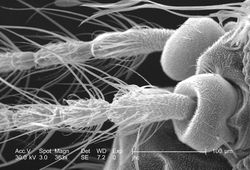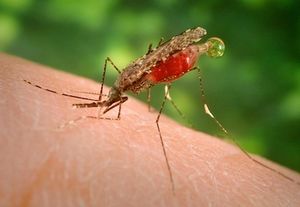Anopheles dirus
| Literature database |
|---|
| 98 articles sorted by: |
| • year (recent ones first) |
| • research topics |
| • countries/regions |
| • list of natural enemies |

Author(s): Janice Carr - CDC/ Paul Howell
Source: Public Health Image Library - image ID 8789
Anopheles dirus Peyton & Harrison, 1979
This mosquito is highly anthropophilic and an important malaria vector in south-eastern Asia, transmitting efficiently both Plasmodium falciparum and P. vivax. It also transmits lymphatic filariasis caused by Wuchereria bancrofti. A. dirus is mainly found in forests or tree plantations of Myanmar and Thailand, as well as in neighbouring countries.
A. dirus bites during the night and while it is predominantly attracted to humans, it may also attack domestic animals or monkeys. It breeds mainly in small accumulations of water like temporary pools and puddles, or in wells. Populations increase during the rainy season.
Taxonomically, A. dirus forms a complex with several closely related species which can only be distinguished by DNA analyses. The members of this complex were previously called species A to F. Apart from A. dirus (species A), other common species of this group are:
- Anopheles baimaii (previously species D)
- Anopheles cracens (previously species B)
- Anopheles elegans (previously species E)
- Anopheles scanloni (previously species C)
For a review see Sinka et al. 2011.
